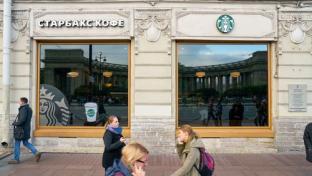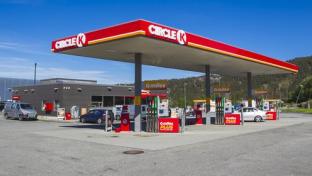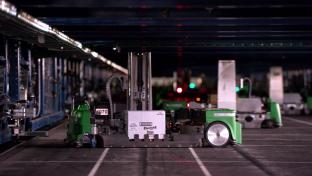News Briefs
- 5/23/2022
Stitch Fix Taps Marc Jacobs for Marketing Chief

Online personal shopping and styling service Stitch Fix has named Debbie Rose Woloshin its chief marketing officer as of May 23.
Woloshin was previously the CMO at Marc Jacobs. Before Marc Jacobs, she led marketing at the Frye Company and Ann, Inc. and spent more than 17 years with the Jones Group. Woloshin will report to Stitch Fix CEO Elizabeth Spaulding and lead the company's marketing teams across the US and the UK.
"I'm thrilled to welcome Debbie to Stitch Fix as our new Chief Marketing Officer," said Spaulding. "There are many exciting opportunities on the horizon as we continue to expand our offering and focus on bringing our personalized styling and shopping experience to more clients. Debbie has built and grown some of fashion's most beloved brands, and we're looking forward to the wealth of creative and commercial experience she'll bring to Stitch Fix. Debbie will play a central role in telling our story as we become the global destination for personalized shopping, styling, and inspiration."
"It's a privilege to be joining a company that is such a disruptive force in our industry," said Woloshin. "I'm excited to be part of creating the future of retail and styling with an organization and team that uses technology and feedback in innovative ways across its business. I'm looking forward to supporting our future growth in this next chapter, and helping expand the universe of customers who will benefit from Stitch Fix's service and brand."
- 5/23/2022
Starbucks Closing 130 Retail Stores

Starbucks announced it will exit Russia completely in response to the country's invasion of Ukraine.
The coffee giant follows in the footsteps of McDonald’s, which announced last week it would exit the market after more than 30 years of operations in the country. Starbucks has operated in Russia for 15 years and said it will exit and no longer have a "brand presence" in the market. This will include closing 130 Starbucks' stores, which are all owned and operated by Alshaya Group, a Kuwait-based franchise operator. The move comes after Starbucks paused store operations and suspended all business activity in Russia, including shipment of all Starbucks products, as of March 8.
The coffee retailer also announced, while it is closing stores, it will continue to support the nearly 2,000 Starbucks associates in Russia, including pay for six months and assistance for employees to transition to new opportunities outside of Starbucks. Starbucks does not have cafés in Ukraine.
[See also: Starbucks Investing in Workforce Tech and NFTs]
Starbucks first announced on March 4th it would keep its Russian stores open but donate any royalties to humanitarian relief efforts in Ukraine and that The Starbucks Foundation contributed $500,000 to World Central Kitchen and the Red Cross for humanitarian relief efforts there.
“As this dynamic situation continues to unfold, we will listen and take additional steps to support all our partners and communities,” then Starbucks CEO Kevin Johnson wrote at the time.
The announcement to exit Russia completely was not signed by Johnson, who announced he was stepping down as president and CEO in March. Howard Schultz returned as interim CEO on April 4, 2022, until a new leader joins the company.
While Starbuck’s and McDonald’s have announced the companies will exit Russia completely, Ikea, H&M and Mango all temporarily closed their stores in Russia in early March. Ikea parent company Ingka Group is one of the largest mall operators in Russia, and temporarily paused all retail and manufacturing operations in the country, as well as trade with the country and its ally Belarus. Ingka’s 14 "Mega" malls will continue operating to provide food, clothing and goods to Russians, the company said.
- 5/22/2022
Couche-Tard Begins Electric Vehicle Charging Rollout in U.S.
Alimentation Couche-Tard Inc. plans to bring electric vehicle (EV) fast chargers to 200 Circle K and Couche-Tard stores across North America over the next two years.
Couche-Tard activated its first U.S. site with high power DC fast charging under the Circle K banner at a new prototype Circle K store in Rock Hill, SC. Along with future deployments across its North American network, the company will use the Rock Hill site to better understand U.S. customer needs, closely tracking driver usage and the resulting impacts on in-store foot traffic. The store is the launching point for the company's U.S. EV charging station rollout because of its convenient location along a fast-growing commuter and travel corridor in a major metropolitan area where EV traffic is anticipated to grow.
As it expands EV charger availability in the U.S. and Canada, Couche-Tard will be taking a strategic approach, building a network for the future, looking at areas with strong EV adoption rates and electric delivery infrastructure to enable it to provide convenient charging options for customers, whether in-town or on the highway. Following its successful rollout in Europe, the company plans to deploy its own charging assets to serve this growing EV customer base and continue to partner with other participants in the emerging e-mobility economy.
"We are committed to playing a key role in meeting our customers' evolving mobility needs as demand for sustainable energy choices continues to grow in all of our markets," said Louise Warner, Couche-Tard's SVP, Global Fuels. "Adding EV charging expands the mobility solutions available to our drivers, giving them a great new reason to visit us and enjoy all we have to offer both in our stores and on our forecourts. Having established Circle K as a leading destination for EV charging in Norway, we are excited to build off our ongoing expansion in Europe to now bring this capability to our North American Circle K and Couche-Tard customers."
The company began introducing EV charging stations four years ago in Norway, the world's most mature EV market, in what is known as its "Norway lab" focusing on innovative EV charging solutions that anticipate and effectively meet the demands of EV customers across the spectrum of driving occasions and needs. The company has a network of more than 1,000 chargers covering more than 230 Circle K stores in Norway, Sweden and Denmark and recently started deployment in other European locations.
"EVs represent 90% of all new passenger cars sold today in Norway. While development in North America is in relatively early stages by comparison, EV acceptance is growing here as manufacturers introduce innovative offerings that meet the unique needs of American and Canadian drivers and infrastructure improves," said Snorre Skeie, Couche-Tard's director of eMobility-North America. "With our broad footprint of more than 9,000 stores across the continent, we are well-positioned to deliver energy for our customers on-the-go, where, when and how they need it."
- 5/22/2022
Couche-Tard Begins U.S. EV Charging Rollout

Alimentation Couche-Tard Inc. plans to bring electric vehicle (EV) fast chargers to 200 Circle K and Couche-Tard stores across North America over the next two years.
Couche-Tard activated its first U.S. site with high power DC fast charging under the Circle K banner at a new prototype Circle K store in Rock Hill, SC. Along with future deployments across its North American network, the company will use the Rock Hill site to better understand U.S. customer needs, closely tracking driver usage and the resulting impacts on in-store foot traffic. The store is the launching point for the company's U.S. EV charging station rollout because of its convenient location along a fast-growing commuter and travel corridor in a major metropolitan area where EV traffic is anticipated to grow.
As it expands EV charger availability in the U.S. and Canada, Couche-Tard will be taking a strategic approach, building a network for the future, looking at areas with strong EV adoption rates and electric delivery infrastructure to enable it to provide convenient charging options for customers, whether in-town or on the highway. Following its successful rollout in Europe, the company plans to deploy its own charging assets to serve this growing EV customer base and continue to partner with other participants in the emerging e-mobility economy.
"We are committed to playing a key role in meeting our customers' evolving mobility needs as demand for sustainable energy choices continues to grow in all of our markets," said Louise Warner, Couche-Tard's SVP, Global Fuels. "Adding EV charging expands the mobility solutions available to our drivers, giving them a great new reason to visit us and enjoy all we have to offer both in our stores and on our forecourts. Having established Circle K as a leading destination for EV charging in Norway, we are excited to build off our ongoing expansion in Europe to now bring this capability to our North American Circle K and Couche-Tard customers."
The company began introducing EV charging stations four years ago in Norway, the world's most mature EV market, in what is known as its "Norway lab" focusing on innovative EV charging solutions that anticipate and effectively meet the demands of EV customers across the spectrum of driving occasions and needs. The company has a network of more than 1,000 chargers covering more than 230 Circle K stores in Norway, Sweden and Denmark and recently started deployment in other European locations.
"EVs represent 90% of all new passenger cars sold today in Norway. While development in North America is in relatively early stages by comparison, EV acceptance is growing here as manufacturers introduce innovative offerings that meet the unique needs of American and Canadian drivers and infrastructure improves," said Snorre Skeie, Couche-Tard's director of eMobility-North America. "With our broad footprint of more than 9,000 stores across the continent, we are well-positioned to deliver energy for our customers on-the-go, where, when and how they need it."
- 5/22/2022
Gap Expands Into Metavese With Roblox Role-Playing Launch

Gap is diving into the metaverse with a new virtual, role-playing experience integrated into Club Roblox. The experience launched on May 20.
To get its teen consumers involved, Gap has designed a virtual Club Roblox Boutique as a Gap Teen store, which will provide a portal for a new game and experiences within Club Roblox. Players can join multiple experiences, including Gap Teen’s fashion show mini-game, Style Stage, which asks users to channel their personal style in Gap Teen outfits. Additionally, visitors can enjoy a juice bar and photobooth to capture their avatar’s Gap Teen looks.
[LISTEN: Tech Transformation Podcast: Forrester Shares the (Real) Future of the Metaverse for Retail]
As for the looks, Gap leaned on its summer ad campaign to borrow replicas of the current Gap Teen collection, which includes 90s loose denim, pocket tees, tank tops, Gap logo hoodies, and dresses.
Through Club Roblox, players can express themselves authentically, aligning with Gap’s core values of individuality and inclusivity. The company is leveraging SuperAwesome from the kidtech platform to support this online world.
“We want Gap Teens to feel represented and connected in an inclusive Gap world with an immersive and unique fashion experience that gives them the freedom to experiment with their individual style and be their true selves, both IRL and in this rapidly growing digital universe,” said Mary Alderete, global head of Gap marketing.
Alderete added that the strategy allows Gap to engage teens where they live and play. Nick Walters, managing director of SuperAwesome Gaming also emphasized the importance of interaction, stating that immersive experiences allow teens to connect with their favorite fashion brand.
- 5/22/2022
Walmart to Deploy Robotics to all Distribution Centers

Walmart has decided to go all in on supply chain robots.
The retailer will deploy robotics and software automation platforms in all 42 of its regional distribution centers over the coming years. The retrofitting process of all 42 DCs is expected to be completed over the next 8-plus years.
The move is an expansion on Walmart’s prior agreement to deploy Symbotic Systems in 25 regional distribution centers. Symbotic LLC’s end-to-end software-enabled high-density robotics platform plays a strategic role in supporting the retailer’s goal of modernizing its supply chain network. The update is expected to allow Walmart to provide faster responsiveness to store orders, increased inventory accuracy and higher capacity for receiving and shipping freight to stores. The technology’s ability to build palletized loads of department-sorted inventory ultimately enables Walmart to get products onto shelves at its more than 4,700 stores more quickly, while also making one of the toughest aspects of supply chain work – material handling – safer and simpler. It also creates new, tech-enabled jobs, such as cell operator and maintenance technician, that offer widely applicable skills in robotics and technology.
“The need for accuracy and speed in the supply chain has never been more visible, and we’re confident that now is the time to move even faster by scaling Symbotic’s technology to our entire regional distribution center network,” said David Guggina, senior vice president of Innovation and Automation, Walmart U.S. “Using high-speed robotics and intelligent software to organize and optimize inventory, the Symbotic System helps us get products to our customers quickly and seamlessly by revolutionizing how we receive and distribute products to stores.”
Walmart has already begun embedding Symbotic’s technology in select regional distribution centers throughout its network.
“The expanded partnership with Walmart substantiates how our technology is truly reinventing the traditional warehouse and distribution of consumer goods across the supply chain,” said Rick Cohen, chairman, president and chief product officer of Symbotic. “As a technology platform with deep roots in warehousing and distribution – our system addresses some of the biggest challenges of today’s complex supply chain, such as inventory agility, transportation cost and labor availability. Modernizing the warehouse allows consumers to get what they need faster and creates benefits for everyone including workers, customers and their local communities.”

